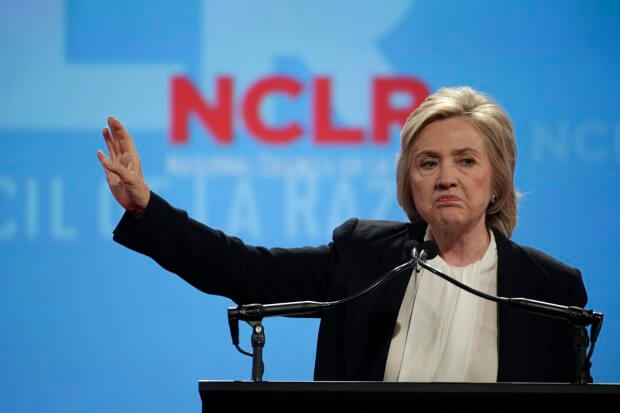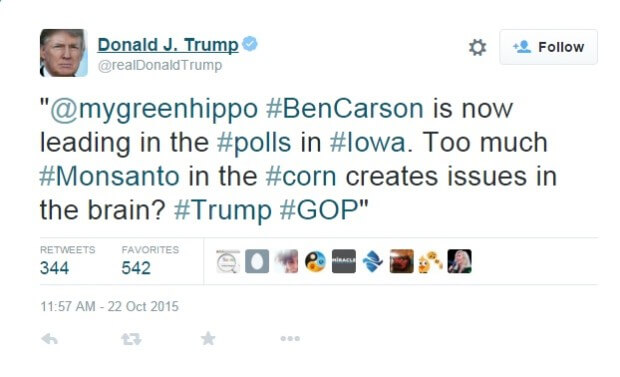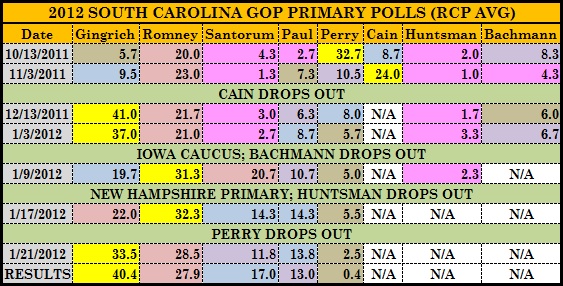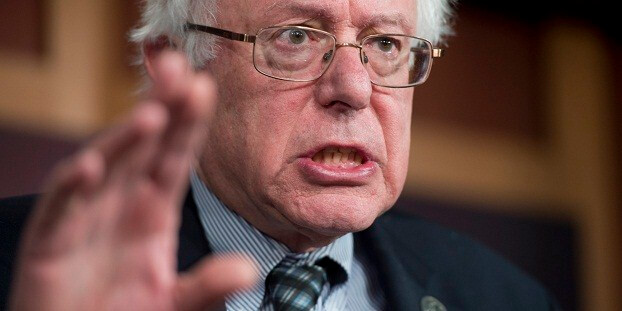My last two essays of 2015 were just before Christmas:
RS: Against Despair: A Christmas Credo for Republicans
RS: What Would a Rubio Win Look Like?
On to 2016.
Category: Politics 2015
Bomb Aladdin!
RS: PPP Polls Shows Why Issue Polling Is So Unreliable

One of the favorite shticks of Democrat pollster Public Policy Polling (PPP) is to ask questions designed to make Republican voters look bad. This kind of “troll polling” flatters all the usual sorts of people who love to laugh at what yokels the GOP’s supporters are, and as yet no Republican-leaning pollster has gotten into the regular business of giving Democrats a taste of the same medicine. If the last few years have taught us anything, it’s not to trust individual polls that can’t be checked against a polling average, but by definition these are all one-off polls. But there’s a deeper issue here that the latest PPP trolling question illustrates: that average Americans are far too trusting of pollsters, and the ability of pollsters to exploit that trust shows why polling on individual issues is untrustworthy.
Here’s the latest poll question that has PPP’s followers floating on a cloud of smug this morning:
Fifth Debate Analysis and Boyd Strategy Essay
My longest deep dive of the year, from the theories of John Boyd: Military Strategist Explains Why Donald Trump Leads – And How He Will Fail
In the LA Times: To understand Donald Trump, look to Europe
Debate Review: The Superstars Bleed
Pick Your Favorite Lindsey Graham Face
Up With Scalia, Down With Kasich
Latest Essays Through Dec 8, 2015
Happy Thanksgiving, 2015!
The Myth of “4 Million Conservative Voters Stayed Home in 2012”
RS: The Myth of “4 Million Conservative Voters Stayed Home in 2012”

I have frequently criticized liberal and Democratic commentators for relying on the Static Electorate Fallacy, the idea that the 2016 electorate and results will not stray far from the demographic, geographic and ideological contours of 2012, despite longstanding American electoral history showing that elections following the re-election of an incumbent have always featured shifts in the map to the detriment of the party in power. Candidates make their own turnout, and removing a successfully re-elected incumbent always puts more voters and potential voters up for grabs.
But conservative and Republican commentators need to avoid believing our own comforting myths, and one of those has managed remarkable durability even though it should have gone away within a month of the 2012 elections: that something like 4 million usually reliable conservative voters – voters who showed up at the polls even in the down year of 2008 to support John McCain – stayed home in 2012 because Mitt Romney was too moderate. This theory keeps getting offered as proof that all the GOP needs to do is nominate a real conservative and this cavalry, 4 million strong, will come charging over the hilltop and save the day. In fact, poor a candidate as he was, Romney actually got more votes than McCain did; the belief that he got less is based entirely on incomplete numbers reported in the first 24-48 hours after Election Day, before all the votes had finally been counted.
Continue reading The Myth of “4 Million Conservative Voters Stayed Home in 2012”
Democrats Start To Show Early Signs of Panic About 2016
RS: Democrats Start To Show Early Signs of Panic About 2016
Fear and Loathing in Hillaryland

To all outward appearances, Democrats and liberal-progressive pundits are confident to the point of arrogant, gloating certainty about the 2016 presidential election. In part this is “victory disease” – they were sure they would win in 2008 and 2012, they were right, so they are convinced it shall always be so. In part it’s a defense mechanism – they got shellacked in 2010 and 2014, and the best way to convince yourself that these losses were illegitimate as a repudiation of their party and its message is to argue that lower-turnout off-year elections don’t represent the real American people who turn out for general elections, who are presumed to give Democrats an unstoppable demographic advantage in all future elections. In part it’s a matter of having settled on a famous and “historic” (first woman) nominee while Republicans are still going about the messy business of sifting through the 14 remaining GOP candidates. And in part it’s calculated strategy, given how much of modern campaigning in general and the strategy of the stilted, sclerotic Hillary campaign in particular will depend on simply bluffing the voters into believing that she’s already an inevitable lock to win. But behind the facade of braggadocio, there are signs that Democrats are starting to worry that their 2016 strategy and prospects may not be as foolproof as advertised.
The theory that Democrats and left-leaning pundits have promulgated since 2012 is that all the old categories of “swing voters” in the center of the electorate are now irrelevant, because they can depend on a permanent general-election majority consisting of 1) mostly urban non-white voters, 2) mostly urban, childless, non-religious white progressives, and 3) the youngest voters. The only thing Democratic politicians need do, the theory goes, is to offer the needed combination of left-wing progressive politics and culture-war hot button wedge issues; after that, the data-miners and hashtag and meme factories will summon these voters to the polls out of the apathetic torpor with which they view elections and government the other 47 months of the political life cycle.
Continue reading Democrats Start To Show Early Signs of Panic About 2016
Aging Democrats
The Democrat Bench Is Shallow And Aging
RS: The Democrat Bench Is Shallow And Aging
The Democrats’ extensive losses in the 2010 and 2014 midterms (as well as other off-year elections in 2009, 2011, 2015 and the Governors races in 2012) have left their party hollowed out beneath the White House, which is one reason why the top two contenders in their presidential primary are a 68-year-old who arrived in Washington in 1993, and a 74-year-old who has never held a leadership position in Congress. But beyond the sheer numbers of losses in the Senate, House, Governorships, and state legislatures, there is also the fact that the GOP is building a strong, deep farm team while the Democrats are aging and not replacing their leaders with much in the way of new blood.
What Conservatism Is
Jindal for President
BLOG/My Latest, 10/6/15-11/3/15
The Obama Administration Goes Big On Extraordinary Rendition
Bobby Jindal’s Ambitious Tax Plan
Should House Republicans Draft Paul Ryan To Be Speaker?
Paul Ryan Uses His Leverage To Drive A Hard Bargain
Donald Trump Tries To Backtrack After Insulting Iowa Voters As Brain-Damaged Corn-Huffers
How and Why Ronald Reagan Won
Previewing The GOP Presidential Primary Calendar
Hillary Clinton Embraces Obama’s Immigration Policy and Contempt for Congress
Seven Questions About Matt Bevin’s Win In Kentucky
How and Why Ronald Reagan Won
RS: How and Why Ronald Reagan Won
Fifty-one years ago today in Los Angeles, a 53-year-old political amateur, Ronald Reagan, gave a half-hour nationally-televised speech, “A Time For Choosing,” on behalf of Barry Goldwater’s campaign in the following week’s presidential election. 16 years later, Reagan would win 44 states and an almost double-digit popular vote margin of victory, kicking off the most successful and conservative Republican presidency in U.S. history, leading to a 49-state landslide in 1984 and the election of his Vice President for a “third Reagan term” in 1988, the only time in the past 70 years that a party has held the White House for three consecutive terms.
Given the extent to which Reagan’s legacy still dominates internal debates within the GOP and the conservative movement, it’s worth asking ourselves: What did he accomplish? How did he do it? And what can we learn from him today?
Donald Trump Tries To Backtrack After Insulting Iowa Voters As Brain-Damaged Corn-Huffers
RS: Donald Trump Tries To Backtrack After Insulting Iowa Voters As Brain-Damaged Corn-Huffers

“Will this be the gaffe that finally sinks Donald Trump” has been a popular parlor game for some months now, and while polling shows that Trump is accumulating unfavorables and hard-core opponents in Iowa and seems to be stalling in persuading any additional supporters, his long-awaited collapse in the polls has yet to materialize and increasingly looks like it is more likely to be a gradual bleed than the implosion of a supernova. Thus, Trump has survived insulting Sen. John McCain (R-AZ)’s war service, badly misunderstanding Christianity, making crude remarks about Megyn Kelly, going full 9/11 Truther, and repeatedly embracing far-left-wing talking points and positions on a whole host of issues.
But in all Trump’s feuds, smack-talking and insults, the one thing he had not done previously was insult the voters. Until today:
“@mygreenhippo #BenCarson is now leading in the #polls in #Iowa. Too much #Monsanto in the #corn creates issues in the brain? #Trump #GOP“
— Donald J. Trump (@realDonaldTrump) October 22, 2015
“@mygreenhippo #BenCarson is now leading in the #polls in #Iowa. Too much #Monsanto in the #corn creates issues in the brain? #Trump #GOP”
Now, if you’re not real familiar with Twitter, this is not Trump’s own words – he is quoting, with apparent approval for his audience of 4.6 million Twitter followers, a tweet by a Twitter user named @mygreenhippo whose Twitter bio links to the website http://www.sexaddiction.tv, a link I dare not click on to find out what it leads to. But leave aside who the original tweeter is (two weeks ago Trump retweeted a Dutch white supremacist, which is sadly characteristic of a small but extraordinarily vocal subset of his online fans) – I’m quite sure that Trump pays no attention to the identity of people tweeting at him, and while doing so would be the wiser course, it’s not really his responsibility to investigate.
But Trump rather clearly was endorsing the sentiment: that Carson pulling ahead of him 28-20 in one poll (the latest Quinnipiac Iowa poll, the first Iowa poll in three weeks) means that something is wrong with Iowa voters, who have therefore earned a vintage Trump put-down. If you think insulting the voters of Iowa is no small deal, ask former Iowa Congressman Bruce Braley, whose bid for the Senate last year was dramatically upended by video of him deriding Chuck Grassley as an Iowa farmer. Or ask Scott Walker, who in March fired strategist Liz Mair over tweets critical of Iowa’s caucus and voters that predated her hiring by Walker. Maybe Trump genuinely shares this level of scorn for Iowans – the man’s a Manhattan real estate mogul, after all, and his speaking style suggests a man who believes he is always putting one over on you – but just as likely, he was just slipping into his typical pattern of handing out schoolyard insults to anyone who disresepects The Donald.
Moreover, the tweet in question showcases a second of Trump’s unsavory characteristics, his tendency to embrace any old conspiracy theory, in this case fear of Monsanto-produced GMOs, a popular bugaboo on the anti-science Left. Smearing the voters and diving into the left-wing fever swamps is an impressive twofer.
Perhaps recognizing that this was a disastrously poor decision, Trump – who is famous for never apologizing for anything – three hours later offered the closest to an apology he is likely to deliver in this campaign:
The young intern who accidentally did a Retweet apologizes.
— Donald J. Trump (@realDonaldTrump) October 22, 2015
The young intern who accidentally did a Retweet apologizes.
Now, while many politicians do indeed have interns tweeting, Trump has rather clearly been doing his own, unfiltered and in his own distinctive voice, for years now, and has given off every indication in interviews that he’s the man with his finger on the Tweet button. Maybe the tweet was an intern’s tweet, maybe not, and maybe the “apologizes” is intentionally tongue-in-cheek a la Monty Python, but characteristically, Trump won’t take responsibility directly for anything.
Maybe the more interesting question is whether we will see more of this kind of reaction as more bad polling news arrives in the future. As Noah Rothman notes, Trump’s campaign message at this point is hugely dependent on bragging about the polls, such that bad polling news could feed on itself and undermine the whole basis of his appeal:
Much of Trump’s extemporaneous stump speeches focus on his roost at the top of polls of Republican primary voters. He contends ad nauseam that the United States is in decline and does not “win anymore.” You’re expected to accept the premise and choose not to ask for specifics about what has been lost in the ill-defined contest. “We’ll have so much winning, you’ll get bored with winning,” Trump adorably quipped…Tragically for Trump, however, he might soon be robbed of his claim to be the bearer of endless victories. This leads us to the big question: Can the Donald Trump campaign endure a loss?
Jeb strategist Mike Murphy – even discounting for his obvious self-interest – makes a similar point:
[N]othing changes like momentum from polling. I often joke that if I ever had the horrible, malicious job of being Head of the PRC’s Intelligence Service and they said, “All right, here’s $20 billion, screw around with the U.S,” one of the first things I’d go do is bribe media pollsters. because you totally control the thinking of the D.C. press corps based on polls. Right now, if four polls had come out saying Trump at seven and Jeb at 29, all the media commentary—without either guy changing a thing they’re doing—would be the exact opposite. Well, Jeb’s low-key style is clearly resonating with voters, it’s exactly what people are looking for, I can just hear it now. Well, Trump’s bombastic style clearly has backfired, we could see… And by the way, the same people would be totally comfortable completely switching their opinions in a minute because most of them are lemmings to these, in my view, completely meaningless national polls.
Walker 18.8
Bush 9.0
Paul 8.5
Trump 8.5
Carson 8.3
Huckabee 7.5
Cruz 7.3
Rubio 6.8
Santorum 4.3
Today, Walker is out, and Jeb, Paul, Huckabee and Santorum are down to less than half their poll averages from late July. In 2012, when the Iowa Caucuses were a month earlier (January 3), Herman Cain was over 30 in the RCP average in late October, Newt Gingrich was at 31 on December 11, and on December 26, 2011, Rick Santorum stood in sixth place at 7.7% of the vote. Yet Santorum won. And if Iowa polls are dicey and volatile, national and later-state polls are even more useless, in part because they are affected by what happens in Iowa and New Hampshire. The Washington Post’s “Past Frontrunners” list notes the national poll standing at this point of the race of some past frontrunners who went on to lose:
2004: Wesley Clark +5
2008 (D): Hillary Clinton +27.3
(R): Rudy Giuliani +9.2
2012: Herman Cain +0.5
And look at what happened in the South Carolina polls in 2012 after Iowa and then New Hampshire:

Here, there are reasons to think more bad news in Iowa may be headed Trump’s way, which could wash out the last 0.7 points of his lead in the RCP average in Iowa. Rothman notes that Iowa is the one place where Trump actually has negative ads running against him, a $1 million Club for Growth ad campaign (I noted last month that the Summer of Trump poll surge was partly dependent on the fact that nobody was in the field running ads yet). And organizing is key in Iowa, yet Trump is the only candidate in the race who hasn’t even bothered to purchase a voter file, and his “campaign has spent more on hats and T-shirts than on field staff members in Iowa, New Hampshire and South Carolina.” So likely-voter screens alone may sap his standing as the polling grows more rigorous. The most respected gold-standard Iowa pollster, J. Ann Selzer’s DeMoines Register poll, will be announcing the results of another Iowa poll Friday, and if it similarly shows Trump out of the lead, it will bear watching if he has another spasm of lashing out at the voters.
Rubio on “Amnesty”
My Latest, 9/17/15
Latest Roundup
How The Supreme Court Created Kim Davis
A thread previously on Storify
Justice Scalia explains why Kim Davis should issue marriage licenses to same-sex couples or find a new job https://t.co/qhHRugHcpA @VolokhC
— Jonathan H. Adler (@jadler1969) September 2, 2015
Scalia is right, but of course liberals berated him when he said this. https://t.co/oxQwFEnFKf
— Dan McLaughlin (@baseballcrank) September 2, 2015
There's always a right, even a duty, to civil disobedience, but with it comes the duty to take the consequences.
— Dan McLaughlin (@baseballcrank) September 2, 2015
1. Such sympathy as you find on the Right for Kim Davis derives directly from the brazen lawlessness of Obergefell itself.
— Dan McLaughlin (@baseballcrank) September 3, 2015
Trumpathon
My two most recent posts at RedState:
1. My quick reaction to the first debate (it seems from post-debate polling that many viewers disagreed with me about Ben Carson, who I thought had a very weak debate but who finished strong.
2. Laura Ingraham Gets Punked By Donald Trump, on the recklessness of conservative talk radio in boosting Donald Trump.
Laura Ingraham Gets Punked By Donald Trump
RS: Laura Ingraham Gets Punked By Donald Trump

Donald Trump presents a threat – we can debate how big a threat, but a threat – to the conservative movement and the Republican Party. As conservatives and Republicans, we need a battle plan that has an endgame that gives Trump a way out of the primaries without running a third-party campaign, and brings his current supporters into the fold to not only support the Republican presidential nominee, but ideally help us select a more conservative nominee, party and platform. So there are limits to how much we should be attacking voters who are listening to Trump and like what they hear.
But there’s a difference between followers and leaders. If you’re in a position of leadership – elected officials, organizers, fundraisers, cable and talk radio hosts, pundits, columnists, bloggers – and you’re actively encouraging the Trump phenomenon, you are neither a conservative nor a Republican anymore and should not expect anyone to take you seriously again. Today’s case in point: Laura Ingraham.
Connecticut Democrats Erase Thomas Jefferson and Andrew Jackson From Their History
King v Burwell
I forgot to add this one the last time I updated here – I didn’t get around to writing up a full analysis of the King v Burwell decision and its many glaring flaws, but I did put together a Storify essay from my Tweets.
2018 UPDATE: Storify is going out of business, so I’m reprinting this below the fold.
Welcome Back, Blog!
I’ve been neglecting this blog rather badly for altogether too long – the archives say I haven’t posted here since September 21, 2014. I’ve been busy in the interim on Twitter, of course, and publishing elsewhere. I probably need to post archived versions of some of those posts here. For now: links.
I will start with The Weekly Standard, where I have this issue’s cover story, just posted today: Giving Thomas His Due, on Justice Thomas’ opinions over the past year and what they tell us about his philosophy. [ETA: Link to the archived original now available here, the print version here, and the live version at the Washington Examiner here]
The Federalist
Then there’s The Federalist, where I tend to post my longer essays these days. I ran a lengthy 5-part essay prior to the Obergefell decision, “Can Gays And Christians Coexist In America?”. Part I looked at the Biblical reasons why Christians believe in one-man-one-woman-for-life marriage. Part II looked at the history of Catholicism and other Biblical Christianity in the battles over slavery and Jim Crow. Part III looked at the Christian concept of scandal and the battle between liberty-based and equality-based views of “LGBT rights.” Part IV looked at the legal arguments over the rational basis for distinguishing between opposite-sex and same-sex marriage. And Part V traced possible ways forward for coexistence post-Obergefell, which admittedly are not looking especially promising at the moment.
The First Principle Of U.S. Foreign Policy looked at various approaches to our foreign policy.
Others from the fall, including some of my poll-analysis posts:
The Ferguson Riots Are Nothing Like The Original Tea Party Protests
Polling Postmortem: The Best And Worst Senate Polls Of 2014 (I keep meaning to run the companion piece on the Governors races before 2016 polling heats up).
Do Democrats Always Win Close Statewide Elections? (covers the 1998-2013 elections; I should update this with 2014 results).
Listening To President Obama’s Ebola Advice Could Get People Killed
And of course, if you missed it last time, my essay on how History Is Not On The Democrats’ Side In 2016 is still an important read on the coming election, undoubtedly the most significant piece I will write on the 2016 election.
RedState
The Rise & Fall of the Confederate Flag in South Carolina – I wrote this a few weeks back, but it’s very relevant to today’s news.
Reading Tea Leaves on the 2015 Supreme Court Term – Basically just some educated speculation on who would write what and when, which ended up having mixed results.
Democratic Party Now Literally Selling Hate – a Father’s Day gift post!
Bernie Sanders, Deodorant and Diversity – a meditation on central planning and markets.
Marco Rubio Recounts The History of Obama’s Treatment of Israel – quick hit on a great Rubio floor speech. Rubio isn’t my first choice in 2016, but he’s done nothing but impress this year.
From the fall:
2014 and Republican Morale – a GOP victory lap and a reflection on what it meant.
The Breakers Broke: A Look Back At The Fall 2014 Polls – A personal victory lap on my 2014 poll analysis and how it relates to the polling controversies of 2012.
The 2014 Polls And The 2012 Exit Polls – An earlier look at the same topic and at some specific issues with exit polling and poll methodology.
Nobody at Vox.com Has Read The Fourteenth Amendment
BREAKING: Supreme Court Takes Obamacare Subsidies Case (on King v Burwell).
First Cut: 7 Polling and Elections Lessons From 2014 (Immediate 2014 election aftermath)
Why I Voted Yes On Question 1 (NY) (Election Day post on a NY ballot initiative)
Final Senate Breakers & Governors Breakers Report November 3, 2014
Senate Breakers Report October 30, 2014
Governors Breakers Report October 30, 2014
A Sad and Desperate Attack on Chris Christie – Actually a fairly deep dive on voter fraud controversies.
Governors Breakers Report October 22, 2014
Senate Breakers Report October 21, 2014
Senate and Governors Breakers Report October 10, 2014
Senate Breakers Report and Governors Breakers Report: Oct 1
Introducing The Senate Breakers Report – September 26, 2014, the start of my Fall 2014 stretch drive when I started getting too busy to cross-post here.
The Rise & Fall of the Confederate Flag in South Carolina
RS: The Rise & Fall of the Confederate Flag in South Carolina

South Carolina Governor Nikki Haley, in the aftermath of the Charleston church shooting, held a press conference Monday with Sen. Tim Scott (R-SC), Sen. Lindsey Graham (R-SC), and legislators from both parties calling for the removal of the Confederate flag from its place on the grounds of the state capitol. This is a good thing. Despite persistent efforts to use the flag as a partisan club, it is worth recalling some history on the matter.
Continue reading The Rise & Fall of the Confederate Flag in South Carolina
Bernie Sanders, Deodorant and Diversity
RS: Bernie Sanders, Deodorant and Diversity
The Smell of Statism
Vermont Senator Bernie Sanders, now running for President as a Democrat (and thus forcing the Democrats to take some ownership of having had an avowed Socialist in their Senate caucus for the past decade plus) thinks that America’s children are starving due to too many brands of deodorant. No, really – here’s the full Q&A:
HARWOOD: If the changes that you envision in tax policy, in finance, breaking up the banks, were to result in a more equitable distribution of income, but less economic growth, is that trade-off worth making?
SANDERS: Yes. If 99 percent of all the new income goes to the top 1 percent, you could triple it, it wouldn’t matter much to the average middle class person. The whole size of the economy and the GDP doesn’t matter if people continue to work longer hours for low wages and you have 45 million people living in poverty. You can’t just continue growth for the sake of growth in a world in which we are struggling with climate change and all kinds of environmental problems. All right? You don’t necessarily need a choice of 23 underarm spray deodorants or of 18 different pairs of sneakers when children are hungry in this country. I don’t think the media appreciates the kind of stress that ordinary Americans are working on. People scared to death about what happens tomorrow. Half the people in America have less than $10,000 in savings. How do you like that? That means you have an automobile accident, you have an illness, you’re broke. How do you retire if you have less than $10,000, and you don’t have much in the way of Social Security?
Now, there’s a lot of things wrong with Sanders’ call for a return to the 90% top income tax rate – the best you can say is that he’s running for President because Yakov Smirnoff is getting desperately short on new material – but let’s focus specifically on that deodorant thing.
You know why America has so many brands of deodorant? Because we’re a very diverse country. Bernie Sanders, being a 73-year-old white guy from a 95% white state, may not know this, but women buy different deodorants than men do, and people of different racial and ethnic groups tend to have different needs and wants as well when it comes to deodorant, shaving cream, shampoo, sunscreen, etc. Race is an artificial category because it’s only skin deep, but hygiene is skin deep too, and people with different skin and hair have different needs to care for their skin and their hair and whatnot. (Ask any black man about his shaving needs, or any Irishman about sunburns, and you’ll know what I mean).
And here’s a more serious point about diversity: in a free market, it doesn’t matter if our political leaders don’t know this stuff. You can sell hair straighteners and respiration masks (hello, Chinese immigrants) and all sorts of things that cater to the different needs of different niche markets, and if some guy in a Senate office in Washington has no clue, that doesn’t matter. But the more the government gets involved in the economy, the more those kinds of local, neighborhood needs get forgotten because powerful people don’t know anybody who buys that stuff.
So leave the rest of us alone, Bernie Sanders. Your economic theories stink.
Recent Posts Roundup
Now that my posts are single-sourced to RedState and The Federalist (for Google/traffic reasons), I’ve been forgetting to link to them all here. A roundup of my latest:
At RedState:
Halbig’s Critics Hoist By Their Own Petards
Obama Peddles Impeachment Conspiracy Theories To Raise Money
John McCain on the Decline & Fall of the United States Senate
Josh Marshall & TPM Promise a “BOOM,” Deliver A Dud
Obama Administration Lied About Insurance Company Bailouts
At the Federalist, a cross-posted version of the Obamacare bailouts piece.


